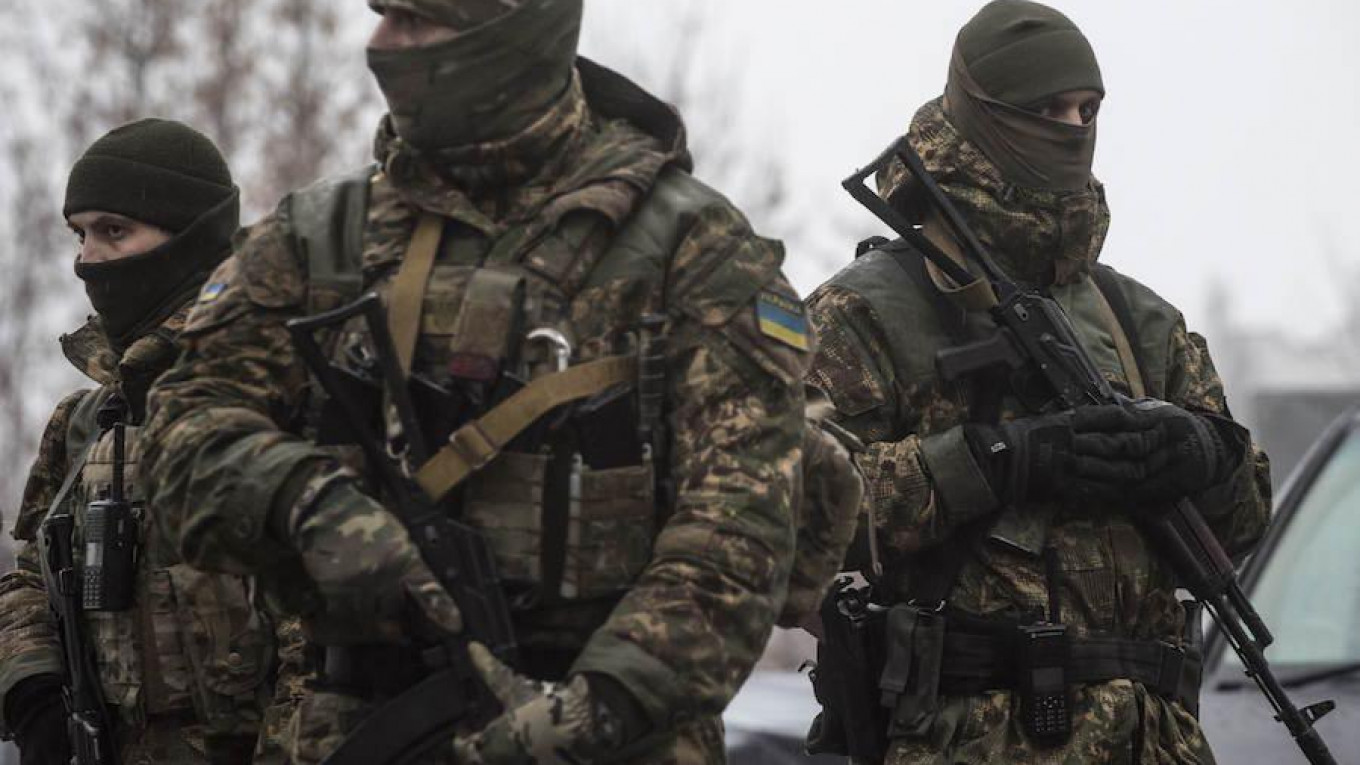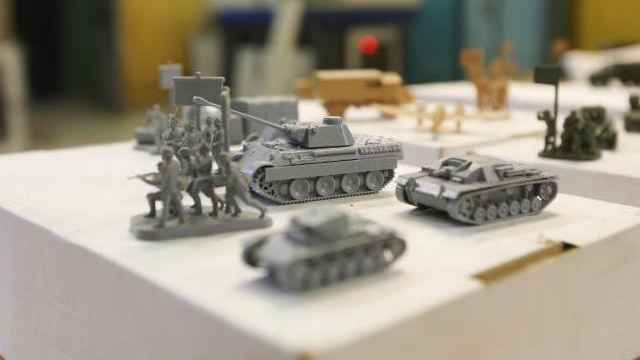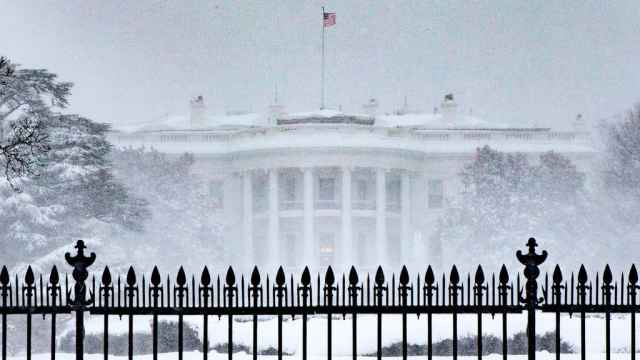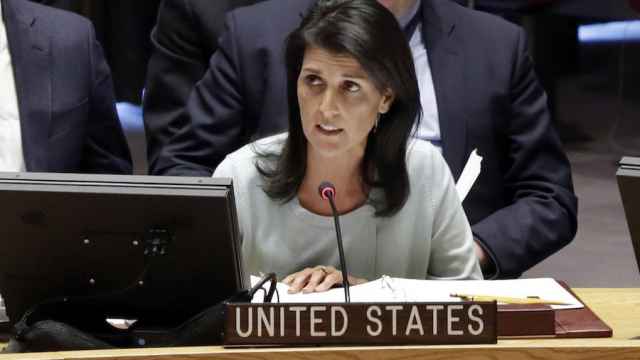The status quo in Donbass is unsustainable. But a political settlement still seems distant — despite renewed speculation to the contrary.
Whatever noise it may make, Kiev is pursuing a tried and tested approach to the conflict: stalling for time. The perverse reality is that Ukraine’s president, Petro Poroshenko, benefits politically from the conflict. Russian aggression and regular flareups are important to marshal international solidarity and crucial financial support. Separatist-generated violence is also the best antidote when Western diplomats try to nudge Kiev toward controversial political settlements.
Kiev is keen to preserve transatlantic unity on sanctions and is no doubt encouraged by signals from the foreign policy establishment in both the EU and the U.S., which suggest there is mounting pressure on the White House to pursue a more sensible policy toward Russia. A bipartisan group of U.S. Senators recently introduced the Russia Sanctions Review Act of 2017, which seeks to tie President Trump’s hands on sanctions relief.
For its part, Moscow has made clear that military force will remain on the table until Kiev engages in genuine dialogue with the separatists. The large, newly-built Russian military bases just over the border make this signal unambiguous.
At the same time, the Kremlin knows that the self-proclaimed People’s Republics do not enjoy the political identity or economic viability that would make them sustainable as separate entities. Leading rebel military commanders continue to be eliminated, presumably at the hands of Russian special services. These changes could be seen as steps towards a political settlement.
But the “no compromises” attitude held by Ukrainian leadership sticks. It may prove to be a misreading of the situation. While the Minsk Agreements are certainly unpopular in Ukraine, peace is not.
The Minsk Agreements do not formally validate Russia’s objectives, such as ensuring Ukraine becomes a neutral buffer against NATO expansion, or an easily manipulable federal entity.
Provisions concerning the autonomy and status of the Russian language in Donbass are also a far cry from earlier goals. But the roots of Kiev’s mistrust are not hard to understand.
What is far less clear is whether the financial costs of reintegrating Donbass into Ukraine proper would be manageable. An audit of the Minsk Agreements by Ukrainian think tanks estimates that $1.5 billion is needed to facilitate an economic recovery of the occupied territories, out of which $1.2 billion would be used for rebuilding infrastructure. Subsidies would also have to increase significantly in the event of reintegration.
The public is divided, and Ukrainian politics are notoriously messy. A new government-authored plan for reintegration faces fierce parliamentary opposition. Veterans of Ukrainian volunteer battalions have initiated a blockade of the occupied territories, which has already led to shortages of anthracite coal coming from Donbass, and sets the stage for more serious energy headaches.
The political incentives are more attractive: preventing Donbass’s reintegration means not having to reckon with four million war-torn voters.
Resisting Russia has become part of post-Maidan Ukraine`s identity, and reintegrating Donbass looks like a Russian Trojan horse for many Ukrainians. No wonder that, as the International Crisis Group wrote in its December 2016 report, Kiev’s main tactic in the confrontation with Russia is procrastination.
President Poroshenko has used the same delaying tactics in reforms and fighting corruption. If Kiev feels vulnerable, the president could hold early elections in 2017. Given that the patriotic-minded electorate is the most organized in Ukraine, a new Rada would almost certainly continue to embrace the same old status quo.
The West’s options in this situation are far from ideal. The best bet is to apply necessary pressure for Kiev to comply with Minsk and engage seriously in the OSCE-led talks in Minsk and the German and French-led Normandy process.
The name of the game is incremental steps — bolstering the fraying ceasefire agreement, heavy weapons withdrawal, implementing the so-called disengagement zones, and prisoner exchanges.
By focusing on “low politics,” not the promise of an unrealistic, dramatic breakthrough, the West can continue to work diligently with Ukraine to stabilize the ceasefire and keep the region moving toward peace. More serious pressure, as both the West and Kiev are aware, may only make Ukraine more fragile.
A Message from The Moscow Times:
Dear readers,
We are facing unprecedented challenges. Russia's Prosecutor General's Office has designated The Moscow Times as an "undesirable" organization, criminalizing our work and putting our staff at risk of prosecution. This follows our earlier unjust labeling as a "foreign agent."
These actions are direct attempts to silence independent journalism in Russia. The authorities claim our work "discredits the decisions of the Russian leadership." We see things differently: we strive to provide accurate, unbiased reporting on Russia.
We, the journalists of The Moscow Times, refuse to be silenced. But to continue our work, we need your help.
Your support, no matter how small, makes a world of difference. If you can, please support us monthly starting from just $2. It's quick to set up, and every contribution makes a significant impact.
By supporting The Moscow Times, you're defending open, independent journalism in the face of repression. Thank you for standing with us.
Remind me later.







